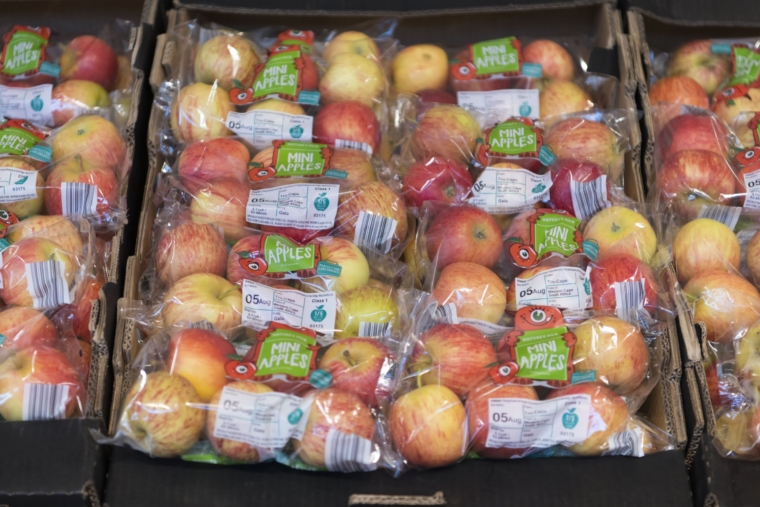Buying fruit and vegetables loose and keeping them in the fridge is the best way for households to cut food waste, new research from waste charity Wrap reveals.
For years retailers have argued plastic packaging is necessary for some fruit and vegetables to keep them fresh for longer, preventing food waste.
But an 18-month study by Wrap suggests plastic packaging “had no or little meaningful effect” on extending their life of foodstuffs such as apples, potatoes and cucumbers, and could even drive up food waste by encouraging people to buy more than they need.
Selling fresh produce loose with instructions to keep it in the fridge was much more effective at curbing food waste, Wrap found.
Removing “best before” labels encouraged people to rely on their own judgement to decide if a foodstuff is safe to eat, also reducing waste, it said.

Around £2.1bn worth of fresh fruit and vegetables are thrown away by UK households each year, much of it before it is even prepared or cooked.
In total removing “best before” labels and plastic packaging on five foodstuffs – apples, bananas, broccoli, cucumber and potatoes – could prevent 10,000 tonnes of household food waste and 10,300 tonnes of plastic waste, Wrap said.
In carbon terms, this would save around 130,000 tonnes of emissions, the charity estimates.
Wrap CEO Marcus Glover called on supermarkets to remove date labels, sell more loose produce and encourage shoppers to store more fresh food in the fridge.
“We are all living with the reality of the climate emergency and the rising cost of living,” he said. “We need retailers to step up and follow our recommendations so we can achieve real progress in tackling food waste and plastic pollution. This helps save the planet and us money at the same time – a real win-win.”
Date labels often underestimate the shelf life of produce, particularly if it has been stored in the fridge. For example, apples can last for more than two months beyond their best before date when stored at 4°C, while broccoli can last an extra fortnight, Wrap said.
The British Retail Consortium, which represents major food retailers, said many supermarkets are already trialling Wrap’s recommendations.

